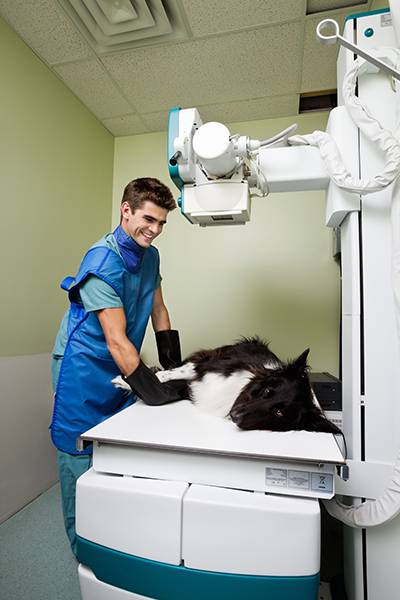If you’re like many people who love animals, you’ve considered a career working with pets. The job of veterinary assistant can be particularly appealing if you want hands-on contact with animals but don’t want to spend extended time in school becoming a veterinarian or registered veterinary technician.
Although the job of veterinary assistant requires less schooling than most other veterinary jobs, other qualifications are mandatory if you want to succeed in this career.
Here are the most important qualifications you’ll need to become a veterinary assistant:
- Love of animals. The majority of your time will be spent handling dogs, cats and sometimes exotic pets, like birds and reptiles. This means you need to love being around animals. If you don’t, it’s unlikely you’ll enjoy this career choice.
- People skills. Even though you will be spending most of your time taking care of animals, you will also be dealing with people. This includes other hospital staff as well as pet owners. You need to be able to work closely with people, and effectively communicate with pet owners, who are sometimes distressed.
- Strong stomach. Being a veterinary assistant means dealing with blood, vomit, feces and urine, which all come with the territory of caring for sick animals. You may also be expected to help out in surgeries, where you’ll be seeing the inside of animals on the operating table. You need to be able to tolerate these aspects of the job.
- Compassion. Veterinary assistants often have to deal with animals that are frightened and owners who are upset. Having a compassionate nature is vital in these situations. Both pets and their owners will sense whether you genuinely care about their wellbeing, and will respond in kind. Compassion will also help you maintain your patience with an uncooperative animal and a difficult owner, and help you not take it personally if a scared animal bites or scratches you.
- Emotional resilience. The irony of being a veterinary assistant is that you must care about pets and their owners while at the same time be able to handle seeing them suffer. Veterinary assistants have to deal with animals that are sick, in pain and dying. Being around grieving owners also comes with the job, and can be challenging for caring veterinary staff to be around. The tradeoff is that for every animal that is lost, even more are saved. Remembering this helps veterinary assistants remain emotionally resilient.
- Attention to detail. Veterinary assistants are expected to take direction from veterinarians and registered veterinary technicians when it comes to the care of sick or injured animals. Understanding these directions and precisely following through on them is crucial to the wellbeing of the animals in your care.
- Ability to handle pressure. Veterinary hospitals can be hectic places, especially when sick or injured animals come in on an emergency basis. The pressure to provide immediate assistance that means the difference between life and death for a pet can be difficult for some people. Being able to cope with this kind of stress is crucial for this job.
- Ability to multitask. Veterinary assistants are often required to care for several pets at one time. This means keeping each animal’s needs straight in your mind even though you have more than one patient to manage at a time. You may find yourself splitting your time between several exam rooms and multiple hospital cages on any given day.
- Physical strength. The job of a veterinary assistant can be quite physical. You will be bending, crouching and lifting on a daily basis. You will also be restraining animals, which can take significant strength in the case of larger pets. It’s important to have a strong back, healthy knees and good upper body strength for you to do your job successfully.





